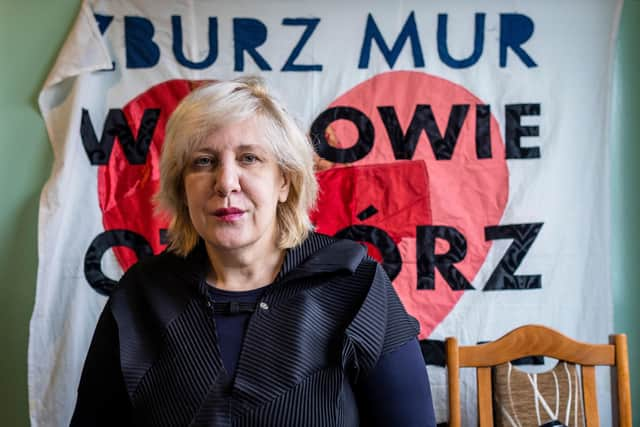Scotland should not deny trans women's human rights because of predatory men – Victor Madrigal-Borloz
At the time, I was monitoring the debate around the Gender Recognition Reform Bill in Scotland, increasingly concerned about deeply stigmatising views of trans women like Azul being thrown around in social media, the artificial connection being drawn between legal recognition of gender identity and risks for the safety of women, and the growing confusion about the views of the United Nations.
This week I issued my opinion on the matter, which has been delivered to the Scottish Government. In a nutshell, the United Nations Human Rights System has for a long time held a consensus view that legal recognition of gender identity is a duty of the state, and that self-identification is among the standards that should guide its implementation. Consensus, of course, does not imply unanimity, but the evidence that I have now presented to the Scottish Government presents a clear picture, one in which the United Nations is firmly behind the human rights of gender-diverse persons, including trans women, and supports the simplification that will be brought about through the Bill.
Advertisement
Hide AdAdvertisement
Hide AdSome argue that subjecting trans women to deep scrutiny will in some way ‘protect’ the system of legal recognition, or that it is a necessary measure to stop predatory males abusing it. Gender or sex-based violence against women is a global scourge that must be addressed by the state through every effective preventive measure. But stopping trans women from the enjoyment of their human rights is not one of them: just as you would not think of taking the rights away from a religious minority simply because non-members could disguise themselves to commit crime and pin it on the community, you should not consider taking away the human rights of trans women just because predatory males could commit fraud.
But even this hypothetical does not answer to the evidence: in the 13 countries and dozens of regions that already have self-identification – whose populations together add up to some 350 million people – there are no administrative or judicial findings that validate the idea that the risk of abuse is a material one.
In that sense, postponing or weakening the Bill appears to be a solution in search of a problem. I invite the proponents of delaying or weakening the Bill to reflect on the extent to which they are seeking to displace responsibility from the real oppressors to persons, communities and populations that are themselves deeply oppressed.
As for Azul, during that week in which my mind was partly in Holyrood, we walked through Lache, the small town where she spent years raising pigs; we visited the tomb of her mother, who has laid in a borrowed crypt for five years and awaits the time that Azul may have the funds to buy a crypt of her own; and we talked about her hopes that the Peruvian state will some day pay the reparations that were ordered for her by the Inter-American Court of Human Rights.
Azul is like every trans woman with whom I have had the privilege to work in the last decade and a half: she walks through life with dignity, without asking anything from anyone. She is brave and keeps her optimism, her faith and her gentle nature as if life had been more generous towards her.


Last year I said to the United Nations General Assembly that all persons who struggle against violence and discrimination, whether it is based on sexual orientation and gender identity or any other grounds, have in common certain lived experiences that should provide a notion of the importance of seeing each other, listening to each other, and acting towards each other with respect, kindness, and compassion. I am convinced that the inclusionary language of the Universal Declaration of Human Rights itself compels all of us to behave in this way to all other human beings born free and equal in dignity and rights and, in this way, is at the core of preserving and safeguarding the common heritage built by our elders and developed over the last 75 years.
Dunja Mijatović, the Council of Europe’s Commissioner for Human Rights, said only last week in the findings of her visit to the UK: "Another worrying feature of the current discourse is the framing of the protection of the rights of trans people as diametrically opposed to, and incompatible with, the protection of the rights of women, or of lesbians, gays or bisexuals. The commissioner is of the opinion that such distortions of human rights as a zero-sum game between different groups must be vigorously rejected.”
In the few cases in which competing interests may exist, these must be carefully resolved on a case-by-case basis. Indeed, there are no administrative or judicial findings of abuse of the system to access safe spaces in all countries or regions that have adopted legislation based on self-determination; and all have reported increased social inclusion and higher social indicator outcomes. I hope that Scotland will soon be part of this list of global leaders.
Advertisement
Hide AdAdvertisement
Hide AdVictor Madrigal-Borloz is the Eleanor Roosevelt senior visiting researcher at the human rights programme of the Harvard University Law School in Cambridge, Massachusetts. Since January 2018, he has worked as the United Nations independent expert on protection against violence and discrimination based on sexual orientation and gender identity.